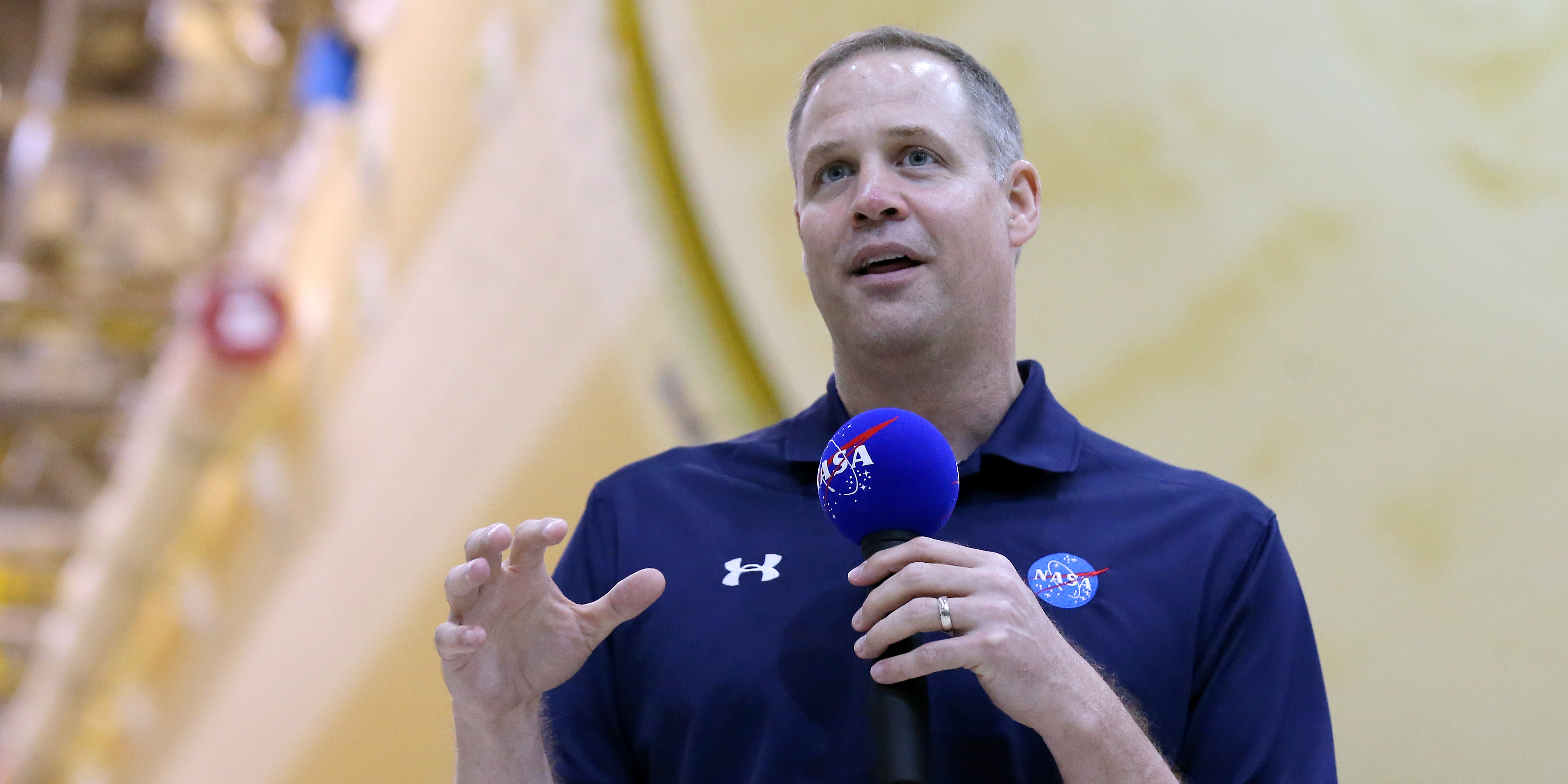- NASA’s head, Jim Bridenstine, has said he believes Pluto is a planet, wading into a decades-long debate over the status of the ninth rock from the sun.
- “You can write that the NASA administrator declared Pluto a planet once again,” Bridenstine said at a conference Friday. “I’m sticking by that – it’s the way I learned it and I’m committed to it.”
- Bridenstine’s 2018 appointment as the administrator of NASA was criticized by lawmakers because of his lack of a scientific background.
- First discovered in 1930, Pluto was long considered a planet before being reclassified as a dwarf planet in 2006 by the International Astronomical Union.
- Visit Business Insider’s homepage for more stories.
NASA’s director, Jim Bridenstine, says that Pluto should be considered a planet, wading into a decades-long debate over the status of the ninth rock from the sun.
In remarks to reporters Friday during a tour of the Aerospace Engineering Sciences Building at the University of Colorado at Boulder, Bridenstine said he sided with scientists who considered Pluto a planet.
“Just so you know, in my view Pluto is a planet,” he said. “You can write that the NASA administrator declared Pluto a planet once again. I’m sticking by that – it’s the way I learned it and I’m committed to it.”
My favorite soundbyte of the day that probably won't make it to TV. It came from NASA Administrator Jim Bridenstine. As a Pluto Supporter, I really appreciated this. #9wx #PlutoLoversRejoice @JimBridenstine pic.twitter.com/NdfQWW5PSZ
— Cory Reppenhagen (@CReppWx) August 23, 2019
Despite being NASA chief, Bridenstine has no background in science. After his nomination to the role by President Donald Trump in 2017, lawmakers voiced concern about his lack of experience.
While NASA administrators are usually appointed from within the ranks of the agency or have substantial military or scientific experience, Bridenstine is a former congressman from Oklahoma and Navy pilot who used to run the Air and Space Museum in Tulsa.
This annoys me. The NASA ADMINISTRATOR saying Pluto is a planet after IAU astronomers worked tirelessly to help further our understanding of the Solar System isn't helping sci-commers at all.
It's like saying the Sun is orbiting Earth because daddy Ptolemy said it did. https://t.co/rlciadDucG
— Lee Giat ✈️ (@AstroDirector) August 24, 2019
Read more: An astronaut may have committed the first space crime while aboard the International Space Station
Previously, his comments questioning the scientific consensus on climate change drew criticism, but he has since said he changed his mind and accepted that climate change had been largely driven by humans.
The scientific community is torn over whether Pluto is a planet

Scientists have long debated the status of Pluto, which was declared a planet after its discovery in 1930 by the US scientist Clyde Tombaugh.
In 2006, the International Astronomical Union downgraded Pluto's status to that of dwarf planet after other objects of a similar size were discovered in its vicinity.
Bridenstine's claims are likely to be met with support by some scientists within his agency. Alan Stern, the leader of NASA's New Horizons mission to research Pluto, has long been a staunch critic of its reclassification.
"My conclusion is that the IAU definition is not only unworkable and unteachable, but so scientifically flawed and internally contradictory that it cannot be strongly defended against claims of scientific sloppiness," he wrote in September 2006.

